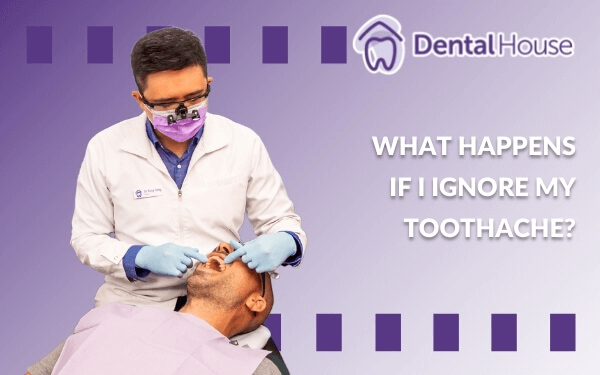Root Canal Treatment
Root Canal Treatment at Gisborne, Macedon & Riddells Creek
Root Canal Treatment Stops Infection

The part of the tooth you can see is the crown and the part that you cannot see is the tooth root. The root canal consists of the space inside the root where the pulp and nerves are found. When decay goes untreated, infection spreads into this canal, causing intense pain and swelling as the nerves and blood vessels are affected. While the pain may feel like you might lose your tooth, root canal treatment can stop the infection and save your tooth.
A cavity can form in any tooth, especially if bacteria is able to hide in cracks and crevices. As the cavity spreads, it becomes deeper, allowing the bacteria to reside inside and multiply, where it spreads and infects the pulp and nerves. Luckily, the root canal can be cleaned and the infected tissue removed. Infection and bacteria are eliminated and the root canal can be filled to protect it from further bacteria and debris.
While root canal treatment is associated with great pain, the pain is due to the infection of the nerves and is a symptom it is spreading. Pain usually indicates that one needs a root canal treatment, and it will not subside until the infected tissue is removed. Dentists perform root canal treatment to remove the infection while will then resolve the pain. Once complete, the surrounding tissue can heal as it feeds a fresh supply of blood to your tooth. You will benefit with the removal of pain and infection and your tooth will be saved.

Root Canal Treatment Stops Infection
The part of the tooth you can see is the crown and the part that you cannot see is the tooth root. The root canal consists of the space inside the root where the pulp and nerves are found. When decay goes untreated, infection spreads into this canal, causing intense pain and swelling as the nerves and blood vessels are affected. While the pain may feel like you might lose your tooth, root canal treatment can stop the infection and save your tooth.
A cavity can form in any tooth, especially if bacteria is able to hide in cracks and crevices. As the cavity spreads, it becomes deeper, allowing the bacteria to reside inside and multiply, where it spreads and infects the pulp and nerves. Luckily, the root canal can be cleaned and the infected tissue removed. Infection and bacteria are eliminated and the root canal can be filled to protect it from further bacteria and debris.
While root canal treatment is associated with great pain, the pain is due to the infection of the nerves and is a symptom it is spreading. Pain usually indicates that one needs a root canal treatment, and it will not subside until the infected tissue is removed. Dentists perform root canal treatment to remove the infection while will then resolve the pain. Once complete, the surrounding tissue can heal as it feeds a fresh supply of blood to your tooth. You will benefit with the removal of pain and infection and your tooth will be saved.
How Infection May Begin
A cavity that is left untreated can spread infection deep into the tooth and its root. Sadly, many patients avoid dental checkups due to fear, especially if they are experiencing pain. What they don’t realize is the pain will not go away without treatment, and treatment will stop the pain. It is a win-win scenario that can save your natural tooth.
Aside from cavities, some other situations may also create the need for root canal treatment, such as:
Our Happy Patient
Who Needs Root Canal Treatment??
Fortunately, tooth pain and sensitivity do not always require root canal treatment, but regular dental checkups will help lower the risk of ever requiring one. The following are some symptoms that might indicate the need for root canal treatment:
The Root Canal Treatment

Root canal treatment begins with a thorough examination of your teeth. We will use x-rays to identify exactly where the infection is and the extent of it, as well as determine the shape of your tooth root. The x-rays will also help us determine if the surrounding bone has been affected.
Once the dentist has a full picture of the infected tooth and root, you will be given a local anesthetic, if needed, to ensure you are comfortable during the procedure. Patients who were in pain before the appointment may receive a local anesthetic prior to coming in.
When the tooth and surrounding area are nice and numb, the tooth will be cleaned of infection and the damaged tissue will be removed. The canal will then be filled with a special material to prevent further infection from entering. If the infection is extensive, the tooth may be cleaned and then medicine applied and the treatment will be completed at a later date to allow the medicine to clear all of the infection. Once your root canal treatment is complete, your tooth will be protected with a dental prosthesis such as a crown.
The Root Canal Treatment

Root canal treatment begins with a thorough examination of your teeth. We will use x-rays to identify exactly where the infection is and the extent of it, as well as determine the shape of your tooth root. The x-rays will also help us determine if the surrounding bone has been affected.
Once the dentist has a full picture of the infected tooth and root, you will be given a local anesthetic, if needed, to ensure you are comfortable during the procedure. Patients who were in pain before the appointment may receive a local anesthetic prior to coming in.
When the tooth and surrounding area are nice and numb, the tooth will be cleaned of infection and the damaged tissue will be removed. The canal will then be filled with a special material to prevent further infection from entering. If the infection is extensive, the tooth may be cleaned and then medicine applied and the treatment will be completed at a later date to allow the medicine to clear all of the infection. Once your root canal treatment is complete, your tooth will be protected with a dental prosthesis such as a crown.

After-Care for the Root Canal Treatment
Your tooth may be a bit sore after the procedure due to normal inflammation. Most patients will easily recover with ibuprofen to remove the pain and reduce the swelling, making healing easier. Root canal treatment has an up to 95% success rate, which means patients get relief and hold onto their natural teeth for years to come.
After-Care for the Root Canal Treatment

Your tooth may be a bit sore after the procedure due to normal inflammation. Most patients will easily recover with ibuprofen to remove the pain and reduce the swelling, making healing easier. Root canal treatment has an up to 95% success rate, which means patients get relief and hold onto their natural teeth for years to come.
Cost of Treatment
Typically, root canal treatment ranges from around $1,000 to $2,000 per tooth and medical insurance often pays for at least part of that. Still, we understand that cost may be an issue for some patients and believe that everyone has a right to healthy teeth, so we will work with you, if needed. We can create a payment plan to fit your budget so you can get relief today.
If the damage from a tooth infection is extensive, it can lead to costlier procedures, more pain, and even hospitalization if the infection is allowed to spread throughout the body. Early treatment is always best and tending to cavities as soon as you know they exist can lower your risk of needing root canal treatment. But if you need root canal treatment, we are committed to your comfort and safety.

Download Price List
While we agree that you can’t put a price on good health (especially when it comes to your teeth), we understand the reality of family budgets. That’s why we offer flexible treatment options and family-affordable pricing. You might say the only thing average about Dental House is our prices.
Our Happy Patient
Root Canal Therapy Blogs
What Happens If I Ignore My Toothache?
A couple of days ago, I met a lovely patient, Zoey from Hillside, who had some chronic toothache for a long time. She came in for us to…
What Is the Process of Root Canal Therapy?
Yesterday, I was with one of our new patients Margaret from Diggers Rest. She came in because she was experiencing really bad pain in her back molar.
What Are the 3 Causes of Toothache and How to Prevent It?
What are the three main causes of toothache? And how to prevent it. Today we’re going to share with you the three most common causes of toothache and how you could prevent it…

Call Us Today
If you are experiencing pain or discomfort in a tooth or teeth, call right away and schedule a dental examination with us. Early intervention can prevent problems from getting worse and keep your costs down. We will work with you to ensure you get the care and support you deserve.
Disclaimer: The material posted is for informational purposes only and is not intended to substitute for professional medical advice, diagnosis or treatment. Results vary with each patient. Any dental procedure carries risks and benefits. If you have any specific questions about any dental and/or medical matter, you should consult your dentist, physician or other professional healthcare providers.
Your Dental House Journey

Your Dental House Journey

Examination and Treatment Planning


Hygiene Department


Clinical Treatment


Functional Restorative







